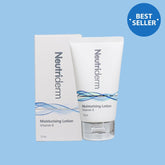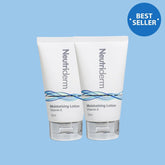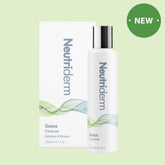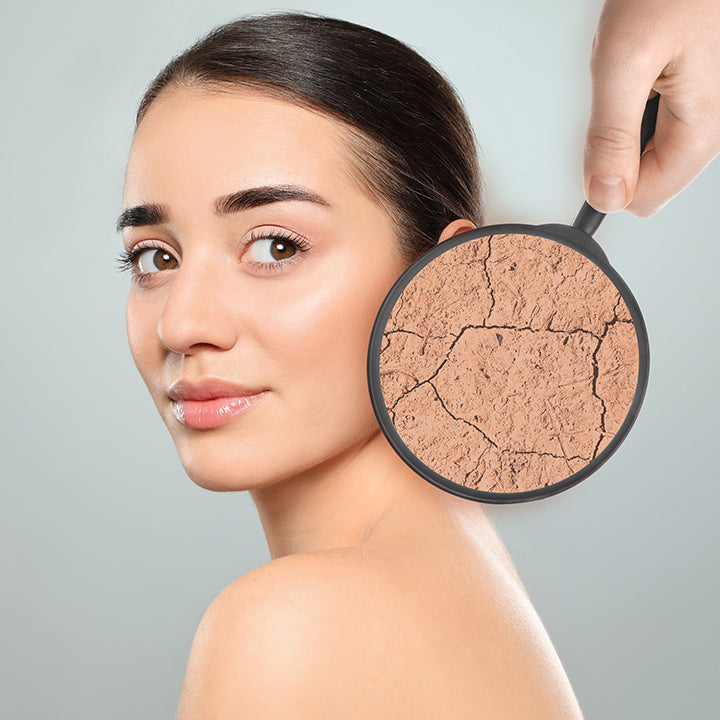We've all been there: that tight, itchy feeling, the flaky patches that just won't quit. Dry skin isn't just a little annoying; it can mess with your comfort and how your skin looks and feels. It's more than just a surface issue, and understanding why it happens is the first step to getting your glow back.
In this blog, we're diving deep into the world of dry skin. We’ll break down the science behind why your skin gets so thirsty, talking about things like your skin's natural moisture and that important barrier that keeps it all in. We’ll also cover those everyday struggles – the tightness, the itchiness, and how dry skin can make you feel older than you are.
But don't worry, it's not all bad news! We’re going to give you a solid skincare routine that actually works. Think gentle cleansers with stuff like colloidal oatmeal, and hydrating creams packed with vitamin E and glycerin. We'll explain why these ingredients are your dry skin's best friends, and how they can help bring back that healthy, hydrated feel.
We're here to help you understand your dry skin better and give you the tools to make it feel amazing again. Let’s get started!
What happens when your skin gets dry?
Alright, let's talk about the real struggles of dry skin, not just the surface stuff, but what's happening underneath. It's more than just feeling a little tight after a shower, right? It's that constant, nagging discomfort. Imagine your skin feeling like it's a size too small, pulled and stretched, especially after you wash your face. That tightness? That's your skin screaming for moisture.
Living with dry skin can feel like a constant uphill struggle. Here are some common pain points:
-
That stretched, uncomfortable feeling, especially after cleansing, is a hallmark of dry skin.
-
Visible flakes and rough patches can affect your confidence and make makeup application a nightmare.
-
Dry skin is often prone to itching, which can lead to scratching and further damage.
-
Dry skin is more vulnerable to irritants and allergens, leading to redness and inflammation.
-
Lack of moisture can accentuate fine lines and wrinkles, making your skin appear older.
-
Dry skin often lacks the natural glow and radiance of well-hydrated skin.
The Why Behind Dry Skin
Dry skin, also known as xerosis, occurs when your skin's outer layer, the stratum corneum, lacks sufficient moisture. This layer acts as a barrier, preventing water loss and protecting against environmental aggressors. Several factors contribute to dry skin:
-
Reduced Natural Moisturizing Factors (NMFs):
NMFs, like sodium PCA and lactic acid, are naturally occurring substances that help retain moisture. Their depletion worsens dryness. -
Impaired Lipid Barrier:
The lipid barrier, composed of ceramides, cholesterol, and fatty acids, helps seal in moisture. Damage to this barrier allows water to evaporate, leading to dryness. -
Environmental Factors:
Cold weather, low humidity, harsh soaps, and excessive sun exposure can strip the skin of its natural oils. -
Genetics and Age:
Some people are genetically predisposed to dry skin, and as we age, our skin naturally produces less oil. -
Underlying Medical Conditions:
Conditions like eczema and psoriasis can exacerbate dry skin.
How Dry Skin Affects Overall Skin Health?
Dry skin isn't just a cosmetic issue; it can impact your overall skin health. A compromised skin barrier makes your skin more susceptible to:
-
Cracks and fissures in dry skin can provide entry points for bacteria and fungi.
-
Dry skin is more prone to inflammation, leading to redness and irritation.
-
Dry skin takes longer to heal from injuries and irritations.

Your Dry Skin Rescue Routine
-
Gentle Cleansing:
A cleanser designed for dry skin is crucial. Look for a soap-free formula, like one with natural colloidal oatmeal, that helps trap moisture and rehydrate the skin. A pH-balanced cleanser will cleanse without stripping essential oils. Ingredients like Sodium PCA and other emollients can provide added hydration. For best results, use twice daily. You can start with Dermavive Hydra Cleanser, that is expert in gentle cleansing and soothing your skin of any itch or irritation. -
Deep Hydration:
Following cleansing, apply a hydrating cream to lock in moisture. A cream that provides intense hydration will leave skin feeling plump and supple. Look for ingredients that offer antioxidant protection against environmental damage and help even out skin tone. Some creams can also create a smooth, hydrated base for makeup. Daily application can help achieve a radiant, healthy glow. We recommend Neutriderm Ultimate Hydrating cream, with its rice powder, it can keep your glow intact while providing you with ultimate hydration from Hydrolyzed proteins!
Tips to manage Dry Skin
-
Drinking plenty of water is the simplest, yet most effective, way to boost your skin's moisture levels. Aim for those recommended daily amounts, and you'll notice a difference.
-
Dry air, especially during winter or in arid climates, sucks moisture right out of your skin. A humidifier adds moisture back into the air, helping to keep your skin hydrated.
-
Hot water and long showers can strip your skin of its natural oils. Opt for lukewarm water and keep showers brief.
-
When drying your skin, gently pat it with a soft towel instead of rubbing. This helps to retain some of that precious moisture.
-
Rough fabrics like wool can irritate dry skin. Stick to soft, breathable materials like cotton or silk.
-
Include healthy fats in your diet, like those found in avocados, nuts, and fish. These fats help to strengthen your skin's barrier and retain moisture.
-
Many soaps and detergents contain harsh chemicals that can dry out your skin. Look for gentle, fragrance-free options.
-
Whether it's harsh sun, cold winds, or dry air, protect your skin with appropriate clothing and sunscreen.
-
Limit Alcohol and Caffeine, as these substances can dehydrate the body, which then affects the skin.
Conclusion
In essence, managing dry skin is about understanding its underlying causes and adopting a consistent, gentle approach. It's not just about slapping on any moisturizer; it's about choosing products with ingredients that truly nourish and protect your skin's delicate barrier. By incorporating gentle cleansing with products like Dermavive Hydra Cleanser, followed by deep hydration from creams like Neutriderm Ultimate Hydrating Cream, and by adopting simple lifestyle changes, you can significantly improve your skin's health and comfort. Remember, hydration from the inside out and protection from environmental stressors are key. Dry skin doesn't have to be a constant struggle. With the right knowledge and a dedicated routine, you can reclaim your skin's natural radiance and enjoy a healthier, happier you.
FAQ’s
Q: What exactly causes dry skin?
A: Dry skin, occurs when your skin's outer layer lacks sufficient moisture. This can be due to reduced natural moisturizing factors (NMFs), a damaged lipid barrier, environmental factors like cold weather or harsh soaps, genetics, age, or underlying medical conditions like eczema or psoriasis.
Q: How can I tell if I have dry skin?
A: Common signs of dry skin include tightness, flakiness, itching, increased sensitivity, dullness, and more noticeable fine lines and wrinkles.
Q: Why does dry skin itch?
A: Dry skin can irritate nerve endings in the skin, leading to itching. A compromised skin barrier also makes the skin more sensitive to irritants.







